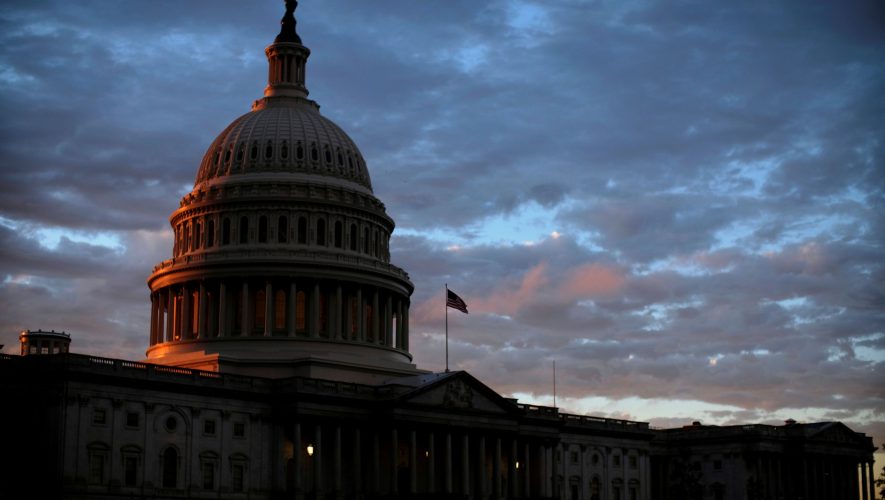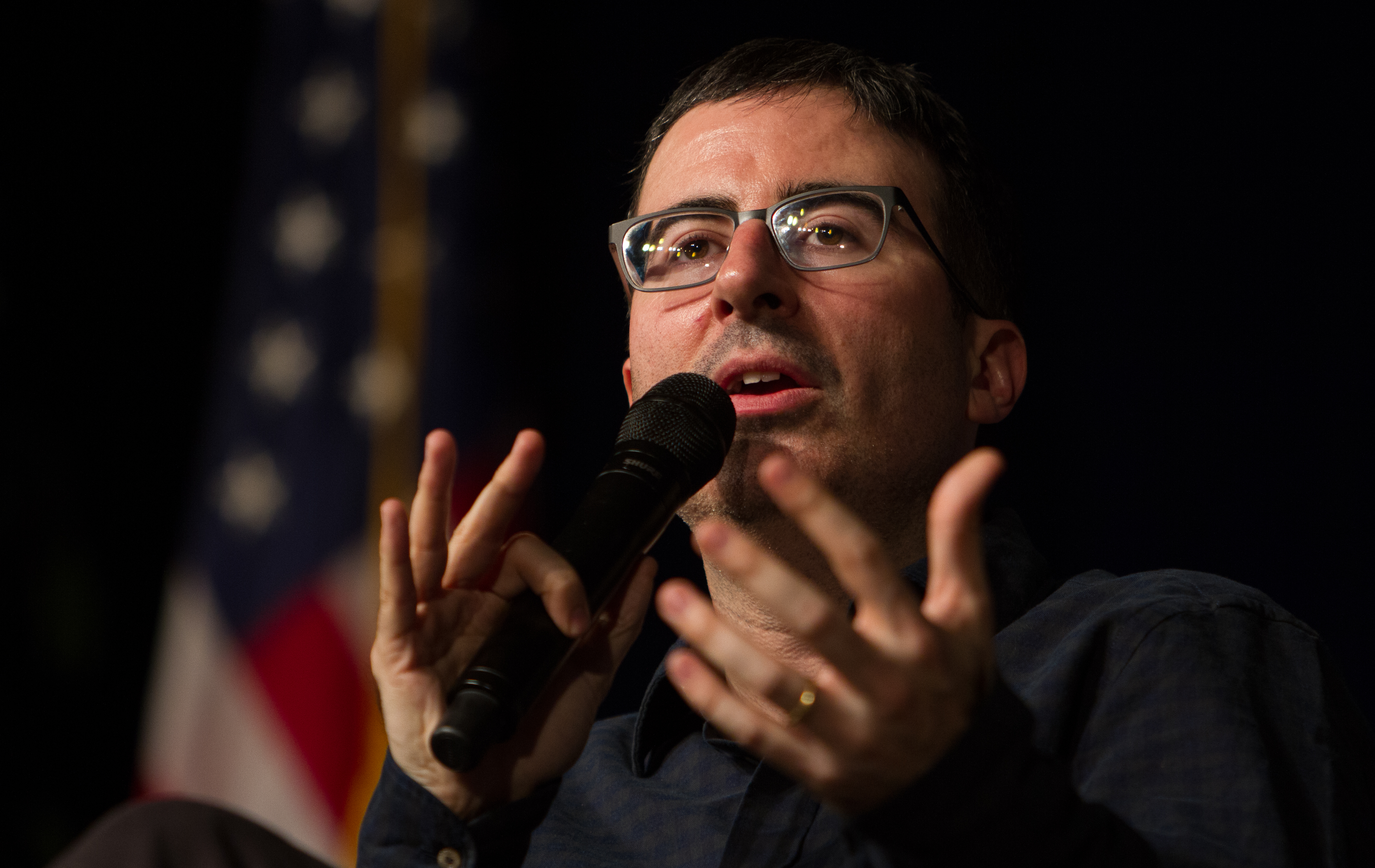Last November, Joe Biden defeated Donald Trump in the presidential election, eking out narrow victories in crucial swing states. But down-ballot, the Democrats suffered greatly. While pollsters expected them to add to their 2018 gains, Democrats lost a dozen seats in the House. In the Senate, they lost manageable pickups in states like North Carolina, Maine, and Iowa, gaining only a slim majority with a depressed Republican turnout in the Georgia runoffs.
To explain their down-ballot woes, political pundits and the Democratic establishment have latched on to a soothing rationalization: it isn’t actually their fault. Instead, the blame lies with the party’s progressive wing and leftist activists, whose radicalism scared the country. Their advocacy for “socialist” policies—like the Green New Deal, Medicare for All, and “Defund the Police”—turned off moderates and cost the Democrats dearly. To chart a course correction, the party must reject the left and stick to a winning formula of centrist politics.
In the Northeastern University Political Review, numerous authors expounded upon this narrative, with articles like “Why Democrats Underperformed on Election Night” by Jake Egelberg and “A Hard Truth for Progressives” by Kartik Prakash advancing similar forms of this argument. But when it comes to evidence, this argument is flimsy, logically incoherent, and tinged with motivated reasoning.
In “A Hard Truth for Progressives,” Prakash concludes from the election results that “America is nowhere near ready to accept the progressive policies pushed by millions in the Democratic base.” It is perhaps surprising that Prakash is willing to imply that a significant portion of the Democratic base is itself progressive, as other prominent proponents of the “progressivism sabotages the party” narrative would vehemently deny this. But a careful reader is left confused when he goes on to proclaim that “while Biden himself is a moderate, Trump and his campaign successfully painted him as a socialist.” Perhaps this is because, when one clicks on the article hyperlinked on the word “successfully,” they are brought to a New York Times article titled “Why Trump’s Efforts to Paint Biden as a Socialist Are Not Working.”
Prakash citing this article is even more baffling considering that it not only argues for the opposing perspective but it actively undermines his assertion that America is “nowhere near ready” for progressive policies. As the article asserts, “a barrage of attacks trying to link the Democratic nominee to policies like Medicare for All aren’t hurting him, polls show, as many of the policies remain popular with most Americans.” The article also points out something else that is equally devastating for Prakash: “when pollsters ask Mr. Biden’s critics to name their concerns about him, ‘socialism’ ranks low on the list.” It is one thing to make mistakes when sourcing a claim, but for a misplaced source to so thoroughly refute one’s own thesis reflects very poorly upon the strength of an argument.
Prakash predicates his argument on a form of cum hoc ergo propter hoc, commonly known as “correlation does not imply causation.” In claiming that progressivism sunk the Democrats, he believes it to be enough to prove that 1) many Democrats ran on or advocated for progressive policies like Defund the Police, 2) Republicans and Donald Trump attacked Democrats for “socialist” policies, and 3) Democrats did poorly in the elections.
On the first premise, Prakash attempts to debunk AOC’s counterclaim that Democrats didn’t run on Defund the Police by pointing to Cori Bush, a newly elected Squad member from St. Louis. Yet Cori Bush is but one member of Congress, and not a well-known one at that, especially not a year ago. It is telling that Bush is the only candidate Prakash can name that openly embraced Defund the Police. Prakash is insinuating that Cori Bush’s words and Cori Bush alone sunk the Democrats, a dubious proposition. None of the Democrats in the House who lost their seats ran on Defund the Police, but Prakash doesn’t seem interested in holding them responsible for their own failures.
The second and third premises are, at face value, true. Donald Trump did level many attacks against the Democrats and Biden that portrayed them as socialists, and the Democrats definitely underperformed. But this does nothing to support his argument; to do that, he would have to prove the Democrat’s woes were the direct result of “socialist” attacks. Furthermore, he would have to show that there were concrete steps Democrats could have taken to avoid such attacks.
The New York Times article Prakash referenced earlier already provides some evidence that directly contradicts his assertions; those direct ties don’t exist. But the lack of ties can also be seen in a case study that he draws heavily upon: Biden’s poor performance in Miami-Dade county. While “Hillary Clinton secured the Latino vote in this county by thirty points, Biden saw this lead shrink to a meager nine.” Prakash reiterates that Biden is no socialist, but he also says that “when confronted with the falsehood that Joe Biden’s America would be open to socialist policies,” Hispanic Floridians “outright rejected the agenda.”
It seems strange that Prakash asserts that Biden is not a socialist but was still greatly harmed by the charge. This example shows the ridiculousness of proclaiming that the toning down of progressivism will stop the “socialist” attacks. If Joe Biden—a man who so clearly disavows both socialism and progressivism—can’t stop the attacks in this vein, why should Democrats take steps to prevent them? The simple reality is that Republicans have been calling Democrats socialists for decades; disciplining the party’s left-wing will not make the attacks go away.
Here, motivated reasoning comes in; Prakash wants to have his cake and eat it too. When centrist Democrats win, he takes this as a sign that center-left policies are the way to go. But when centrist Democrats either underperform or lose, in the case of many House Democrats, he does not take this as a knock on them. Rather, he switches gears and blames those who were not in the driver’s seat, progressives. Thus, every outcome confirms his preexisting beliefs about what Democrats ought to do. But this sort of inconsistency makes for a weak argument: the head coach calling the plays does not get to blame the person riding the bench when the quarterback throws an interception.
The promise of Biden this election cycle was simple: he alone, unlike Bernie Sanders or Elizabeth Warren, could win over sensible, moderate Republicans who disliked Trump’s antics and wanted a return to normalcy. Only he could go into swing states like North Carolina and Florida and win. One look at the DNC showcases quite clearly the lie that left-wing policies were anywhere near mainstream in the Democratic Party. Except for Bernie Sanders and AOC— relegated to a mere 60 seconds—every Democrat who spoke came from the party’s centrist wing; four of the speakers were even Republicans.
Yet the 2020 election results showed the strategy championed by the party establishment and Lincoln Project grifters to be utterly worthless. Yes, Biden was able to defeat Trump on the back of a Democratic electorate in which almost half cast votes against Trump rather than for Biden. But not only was Biden unable to pick up North Carolina and Florida, states that he claimed he alone could carry, he was also entirely wrong about flipping Republicans. According to exit polls, 94 percent of Republicans voted for Donald Trump, a 3 percent increase from 2016. But again, party loyalists show very little interest in analyzing Biden’s shortcomings without simply writing them off as either AOC or Cori Bush’s fault.
To be fair, Prakash is not alone in his confirmation bias; the party figures he cites—Conor Lamb, Jim Clyburn, and Abigail Spanberger—all echoed this argument. Yet none of them have provided any more evidence other than the same familiar talking point: Defund the Police bad. This claim is particularly funny from Abigail Spanberger, a former CIA officer complaining that she nearly lost her seat because she couldn’t convince voters that she didn’t want to defund the police. Spanberger’s flawed and biased analysis stems from a deeper problem in the mainstream Democratic psyche. No matter what the outcome of an election is, it will only reinforce their preconceived notions about the party’s direction; and it will always just happen to align with their own priorities.
Prakash and centrist Democrats take for granted Florida’s “rebuff of progressive politics” and warn that “if a democratic socialist takes on the mantle of the Democratic Party, the crucial swing state of Florida could turn into a Republican stronghold.” Yet not only do they fail to note how the politics of figures like Hillary Clinton and Joe Biden have done their part to contribute to the redshift of Florida in recent elections; they fail to acknowledge that, when progressive policies are not paired with boring Democratic presidential candidates, they have actually fared quite well in Florida.
In 2018, Florida voters opted to restore the right to vote to felons upon completing their sentences. In 2020, the $15 minimum wage was far more popular than Joe Biden, as the same voters who rejected him voted yes on a minimum wage hike by a comfortable margin. The minimum wage referenda serves as another example of the phenomenon described in the article that Prakash was so thankful as to provide us: progressive politics are not the albatross around Biden’s neck that centrist Democrats believe them to be.
The left has certainly suffered setbacks recently, which deserve close examination. But based on the strength of analysis shown in this article, the last people who should be doing it are those that have a vested interest in its failure.



